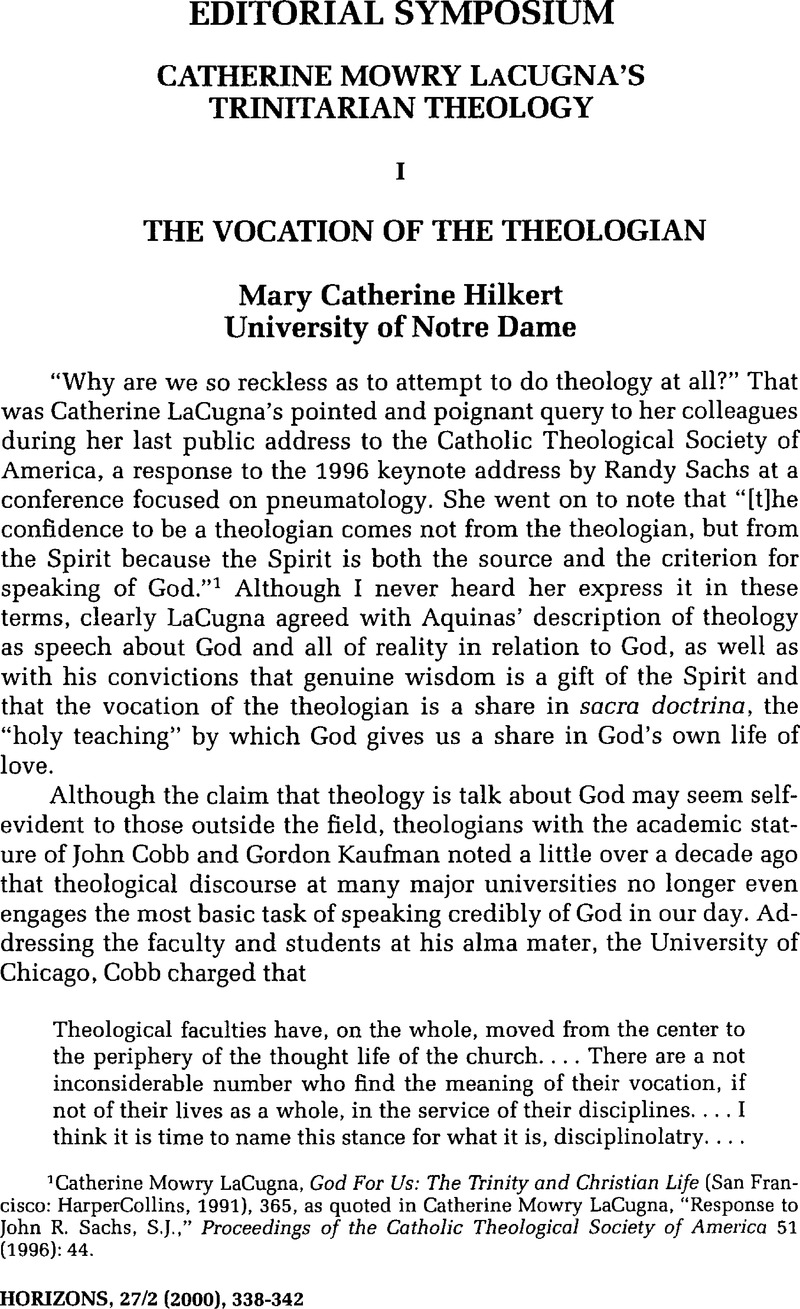No CrossRef data available.
Published online by Cambridge University Press: 09 September 2014

1 LaCugna, Catherine Mowry, “Reconceiving the Trinity as the Mystery of Salvation,” Scottish Journal of Theology 38 (1985).1.CrossRefGoogle Scholar
2 LaCugna, Catherine Mowry, God for Us: The Trinity and Christian Life (San Francisco: HarperCollins, 1991), 380.Google Scholar
3 Ibid., 381.
4 LaCugna, , “Reconceiving,” 1.Google Scholar
5 LaCugna, , God for Us, 400–1.Google Scholar
6 Ibid., 401.
7 See chapter 4 of LaCugna, God with Us, entitled “Christian Prayer and Trinitarian Faith.”
8 Jungmann, Josef, The Place of Christ in Liturgical Prayer (New York: Alba House, 1965).Google Scholar
9 LaCugna, , God for Us, 124.Google Scholar
10 Ibid., 125.
11 Cyril of Alexandria (developed by Severus of Antioch and John of Damascus) used enhypostatos to refer to the fact that in the assumption of the flesh the human nature of Christ was given a real concrete hypostasis or subsistence within the hypostatic union—it was enhypostatic in the incarnate Son or Word of God (contrary to Apollinarian or monophysite errors). See Torrance, T. F., The Christian Doctrine of God, One Being, Three Persons (Edinburgh: T & T Clark, 1996), 160.Google Scholar
12 LaCugna, , God for Us, 127.Google Scholar It is interesting that this comment should be made by a Roman Catholic theologian.
13 LaCugna, Catherine Mowry, “Philosophers and Theologians on the Trinity,” Modern Theology 2/3 (1986): 178–79.CrossRefGoogle Scholar